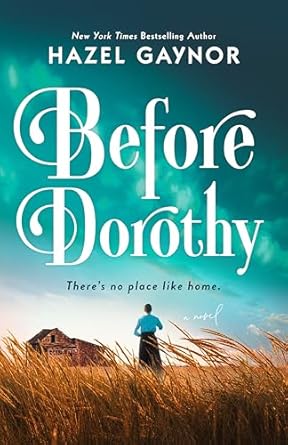Copyright stands
Mailbox Monday is now hosted monthly by a different blog. Here is the official blog of Mailbox Monday. Here is what I received over the last couple of weeks:
The Season of Second Chances by Diane Meier
Won from The Eclectic Reader
A world of possibilities opens up for Joy Harkness when she sets out on a journey that’s going to show her the importance of friendship, love, and what makes a house a home
Coming-of-age can happen at any age. Joy Harkness had built a university career and a safe life in New York, protected and insulated from the intrusions and involvements of other people. When offered a position at Amherst College, she impulsively leaves the city, and along with generations of material belongings, she packs her equally heavy emotional baggage. A tumbledown Victorian house proves an unlikely choice for a woman whose family heirlooms have been boxed away for years. Nevertheless, this white elephant becomes the home that changes Joy forever. As the restoration begins to take shape, so does her outlook on life, and the choices she makes over paint chips, wallpaper samples, and floorboards are reflected in her connection to the co-workers who become friends and friendships that deepen. A brilliant, quirky, town fixture of a handyman guides the renovation of the house and sparks Joy’s interest to encourage his personal and professional growth. Amid the half-wanted attention of the campus’s single, middle-aged men, known as “the Coyotes,”and the legitimate dramas of her close-knit community, Joy learns that the key to the affection of family and friends is being worthy of it, and most important, that second chances are waiting to be discovered within us all.
Caleb's Crossing by Geraldine Brooks
Won from Review Room
A richly imagined new novel from the author of the New York Times bestseller, People of the Book.
Once again, Geraldine Brooks takes a remarkable shard of history and brings it to vivid life. In 1665, a young man from Martha's Vineyard became the first Native American to graduate from Harvard College. Upon this slender factual scaffold, Brooks has created a luminous tale of love and faith, magic and adventure.
The narrator of Caleb's Crossing is Bethia Mayfield, growing up in the tiny settlement of Great Harbor amid a small band of pioneers and Puritans. Restless and curious, she yearns after an education that is closed to her by her sex. As often as she can, she slips away to explore the island's glistening beaches and observe its native Wampanoag inhabitants. At twelve, she encounters Caleb, the young son of a chieftain, and the two forge a tentative secret friendship that draws each into the alien world of the other. Bethia's minister father tries to convert the Wampanoag, awakening the wrath of the tribe's shaman, against whose magic he must test his own beliefs. One of his projects becomes the education of Caleb, and a year later, Caleb is in Cambridge, studying Latin and Greek among the colonial elite. There, Bethia finds herself reluctantly indentured as a housekeeper and can closely observe Caleb's crossing of cultures.
Like Brooks's beloved narrator Anna in Year of Wonders, Bethia proves an emotionally irresistible guide to the wilds of Martha's Vineyard and the intimate spaces of the human heart. Evocative and utterly absorbing, Caleb's Crossing further establishes Brooks's place as one of our most acclaimed novelists.
The Homecoming of Samuel Lake by Jenny Wingfield
Won through LibraryThing's Early Reviewers
Every first Sunday in June, members of the Moses clan gather for an annual reunion at “the old home place,” a sprawling hundred-acre farm in Arkansas. And every year, Samuel Lake, a vibrant and committed young preacher, brings his beloved wife, Willadee Moses, and their three children back for the festivities. The children embrace the reunion as a welcome escape from the prying eyes of their father’s congregation; for Willadee it’s a precious opportunity to spend time with her mother and father, Calla and John. But just as the reunion is getting under way, tragedy strikes, jolting the family to their core: John’s untimely death and, soon after, the loss of Samuel’s parish, which set the stage for a summer of crisis and profound change.
In the midst of it all, Samuel and Willadee’s outspoken eleven-year-old daughter, Swan, is a bright light. Her high spirits and fearlessness have alternately seduced and bedeviled three generations of the family. But it is Blade Ballenger, a traumatized eight-year-old neighbor, who soon captures Swan’s undivided attention. Full of righteous anger, and innocent of the peril facing her and those she loves, Swan makes it her mission to keep the boy safe from his terrifying father.
With characters who spring to life as vividly as if they were members of one’s own family, and with the clear-eyed wisdom that illuminates the most tragic—and triumphant—aspects of human nature, Jenny Wingfield emerges as one of the most vital, engaging storytellers writing today. In The Homecoming of Samuel Lake she has created a memorable and lasting work of fiction.
Purchased from Barnes and Noble:
Krakatoa: The Day the World Exploded: August 27, 1883 by Simon Winchester
The legendary annihilation in 1883 of the volcano-island of Krakatoa — the name has since become a byword for a cataclysmic disaster — was followed by an immense tsunami that killed nearly forty thousand people. Beyond the purely physical horrors of an event that has only very recently been properly understood, the eruption changed the world in more ways than could possibly be imagined. Dust swirled round die planet for years, causing temperatures to plummet and sunsets to turn vivid with lurid and unsettling displays of light. The effects of the immense waves were felt as far away as France. Barometers in Bogotá and Washington, D.C., went haywire. Bodies were washed up in Zanzibar. The sound of the island's destruction was heard in Australia and India and on islands thousands of miles away. Most significant of all — in view of today's new political climate — the eruption helped to trigger in Java a wave of murderous anti-Western militancy among fundamentalist Muslims: one of the first outbreaks of Islamic-inspired killings anywhere.
Simon Winchester's long experience in the world wandering as well as his knowledge of history and geology give us an entirely new perspective on this fascinating and iconic event as he brings it telling back to life.
Genome: The Autobiography of a Species in 23 Chapters by Matt Ridley
A fascinating tour of the results of the most momentous scientific endeavor of our time--the Human Genome Project--cleverly told in 23 essays, one for each chromosome.
Following in the tradition of James Gleick's Chaos, Matt Ridley vividly brings to light the most profound scientific discovery of the century--the mapping of the human genome. In charmingly witty and lucid prose, Ridley describes what the human genetic code is, how it works, and demonstrates how this newfound knowledge will affect medicine, the pharmaceutical industry, business, politics, and our own lives. Genome is divided into 23 chapters, one for each chromosome, each of which tells the story of a particular gene and how it affects an individual: from intelligence and personality to disease and sexual behavior. Examining a scientific achievement on par with--and with as many dire implications as--the splitting of the atom, Genome makes clear who we humans are--and where we may be going.
A former editor of the Economist, Matt Ridley is the author of The Red Queen: Sex and the Evolution of Human Nature and The Origins of Virtue: Human Instincts and the Evolution of Cooperation. He lives in Newcastle-Upon-Tyne, England, with his wife and two children.
Wench by Dolen Perkins-Valdez
An ambitious and startling debut novel that follows the lives of four women at a resort popular among slaveholders who bring their enslaved mistresses.
wench \'wench\ n. from Middle English "wenchel," 1 a: a girl, maid, young woman; a female child.Tawawa House in many respects is like any other American resort before the Civil War. Situated in Ohio, this idyllic retreat is particularly nice in the summer when the Southern humidity is too much to bear. The main building, with its luxurious finishes, is loftier than the white cottages that flank it, but then again, the smaller structures are better positioned to catch any breeze that may come off the pond. And they provide more privacy, which best suits the needs of the Southern white men who vacation there every summer with their black, enslaved mistresses. It's their open secret.
Lizzie, Reenie, and Sweet are regulars at Tawawa House. They have become friends over the years as they reunite and share developments in their own lives and on their respective plantations. They don't bother too much with questions of freedom, though the resort is situated in free territory–but when truth-telling Mawu comes to the resort and starts talking of running away, things change.
To run is to leave behind everything these women value most–friends and families still down South–and for some it also means escaping from the emotional and psychological bonds that bind them to their masters. When a fire on the resort sets off a string of tragedies, the women of Tawawa House soon learn that triumph and dehumanization are inseparable and that love exists even in the most inhuman, brutal of circumstances–all while they are bearing witness to the end of an era.
An engaging, page-turning, and wholly original novel, Wench explores, with an unflinching eye, the moral complexities of slavery.




















1 comment:
I received Wench this past week also. I bought it after hearing so many great things about it. i hope we both enjoy it.
Post a Comment